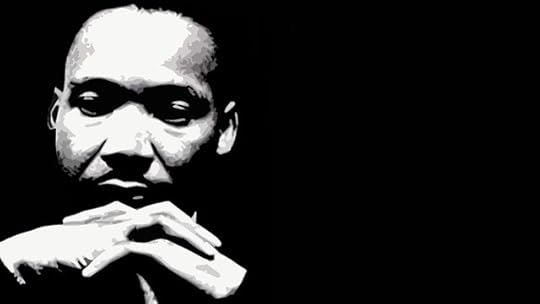Martin Luther King, Jr. as an Aging Radical Theologian: The Later King (part two)
 Martin Luther King, Jr. as an Aging Radical Theologian: The Later King (part two)by Charles Bane, Jr. | NewBlackMan (in Exile)
Martin Luther King, Jr. as an Aging Radical Theologian: The Later King (part two)by Charles Bane, Jr. | NewBlackMan (in Exile)"He who has been earnest in the love of knowledge must have thoughts immortal; if he attains truth, and in so far as human nature is capable of sharing in immortality, he must altogether be immortal." -- Plato
Virtually every scientist can explain to a layman the hundreds of thousands of genetic locks that must be opened and their contents set into place before every individual-- rare, unique and never again to be duplicated-- can be born. To this add the uncertain flow and shadows of history that preceded him and the genius of Martin Luther King, Jr. becomes apparent as something akin to the divinity he studied.
No sacred text of Christianity existed until three centuries after the death of Jesus of Nazareth. Until then, early Christianity expressed in Aramaic stories and sayings ( many now lost or discarded) that only later were to gel into a written document and "new covenant" of a faith borne from Judaism. It was written in the language of learning, Greek, but because the world was Rome, the Gospels were translated into Latin. This guaranteed that the illiterate faithful would only know of Christianity what the politically powerful Roman Catholic Church wished them to know.
Today, we scoff at the idea that men and women ( especially women) could be denied access to religious writings in their own native tongues- but the censorship of the Church was almost benign in comparison to the slaveholders of white America who did everything in their power to keep Africans religiously disarmed. It was no use. For Africans, the Christian Gospels fused them to the spirit of enslaved Israelites who were singled out for favor by Providence.
Martin Luther King Jr. was electrifyingly more than the sum of his parts. He was more than the Black Theology studied by the distinguished James H. Cone whose seminal 1969 "Black Theology And Black Power", defined a religious movement that advocated recasting salvation as a direct concern of Christ for the dispossessed, unheard and powerless.
And in 1977 Cone wrote, "I think the time has come for Black theologians and Black church people to move beyond a mere reaction to white racism in America and begin to extend our vision of a new socially constructed humanity in the whole inhabited world... For humanity is whole, and cannot be isolated into racial and national groups." But more than a decade earlier, against all advice, King had publicly called for an end to the Vietnam War.
If he had lived, it is impossible to believe that Martin Luther King, Jr. would not have thrown himself into learning ancient Greek, his heart tasked with a new translation of the Christian Gospels. It is impossible to believe that this work would not ask of the future a single, pointed question: We were enslaved, and Christianity gained our souls. Are we not an Elect?
+++
Charles Bane, Jr. is a poet and activist.
Published on January 22, 2017 18:33
No comments have been added yet.
Mark Anthony Neal's Blog
- Mark Anthony Neal's profile
- 30 followers
Mark Anthony Neal isn't a Goodreads Author
(yet),
but they
do have a blog,
so here are some recent posts imported from
their feed.



